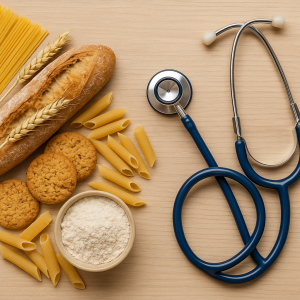 Studies conducted on mice indicate that restricting the consumption of a specific essential amino acid can mitigate the signs of aging and potentially increase mice’s longevity. Researchers are now speculating as to whether these discoveries could enhance people’s longevity and standard of living. One of the three branched-chain amino acids that our bodies use to produce proteins is isoleucine. It’s necessary for our survival, but since our cells can’t produce it on their own, we must obtain it from other foods like meat, dairy, eggs, and soy protein.
Studies conducted on mice indicate that restricting the consumption of a specific essential amino acid can mitigate the signs of aging and potentially increase mice’s longevity. Researchers are now speculating as to whether these discoveries could enhance people’s longevity and standard of living. One of the three branched-chain amino acids that our bodies use to produce proteins is isoleucine. It’s necessary for our survival, but since our cells can’t produce it on their own, we must obtain it from other foods like meat, dairy, eggs, and soy protein.
On the other hand, something good can never be had in excess. Prior studies utilizing data from a 2016–2017 Wisconsin resident survey discovered a correlation between dietary isoleucine levels and metabolic health, and that individuals with higher body mass indices typically consumed significantly more of the amino acid. The new findings were published in November. “Different components of the diet have value and impact beyond their function as calories, and we’ve looked at one component that many people may be eating too much of,” said metabolism researcher Dudley Lamming of the University of Wisconsin, US, who was involved in both studies.
“It’s interesting and encouraging to think that a change in diet can still make such a big difference in life span and what we call ‘health span’, even if it starts closer to mid-life.” In the most recent study, mice with different genetic backgrounds were given three different diets: one with 20 common amino acids as a control, one with all amino acids reduced by roughly two-thirds, or one with the same reduction in isoleucine alone.
Article continued below
When the study began, the mice were around six months old—roughly the same age as a 30-year-old human. They were allowed to eat as much as they pleased, but only from the particular kind of food that was served to them. Limiting the amount of isoleucine in the diet improved the mice’s health and longevity, decreased their fragility, and encouraged leanness and glycaemic management. When compared to mice whose isoleucine was not restricted, the lifespan of male mice increased by 33%, while that of female mice increased by 7%.
Additionally, these mice performed better on 26 health-related metrics, such as blood sugar levels, tail use, muscle strength, endurance, and hair loss. The male mice in this group were less likely to develop the cancerous tumors that are common in the various mouse strains, and they also showed less age-related prostate enlargement.
It’s interesting to note that the mice on the low-isoleucine diet consumed a lot more calories than the other mice. However, despite having the same amount of activity, they actually burned more calories and kept a lower body weight rather than gaining weight. As with all mouse studies, we won’t know for sure until it’s tested in humans, but the researchers think that limiting isoleucine in humans through food or medication could have similar anti-aging effects.
It is not as simple as it sounds. The researchers point out that nutrition is an extraordinarily complex chemical reaction and that other dietary components may be involved in producing these results, even though the food given to the mice was controlled. For instance, limiting protein consumption in general, whether in humans or mice, has a negative impact on the body. Although cutting back on protein-rich foods is the easiest approach to limit isoleucine intake, applying this research to humans is more complex.
One size does not fit all when it comes to diet; they admit that further fine-tuning may be required for optimal effects in different mouse strains and sexes. However, the level of amino acid restriction was constant throughout all experiments.
“We can’t just switch everyone to a low-isoleucine diet,” Lamming stated. “But narrowing down these benefits to a single amino acid brings us closer to understanding the biological processes and perhaps potential interventions for humans, such as an isoleucine-blocking drug.”






